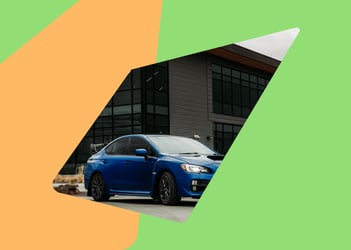- Carmoola
- Blog
- Tips and Advice
- How to Drive Safely in the Dark

How to Drive Safely in the Dark
If you’re going to be driving at night, it’s important to know some tips that you can use so you’ll stay safe throughout your journey.
Driving in the dark can be dangerous, especially if you’re not familiar with the road. Your vision is impaired, and you might even feel drowsy while driving.
So, take time to read this article so you’ll know the best way to prepare for nighttime driving.
Give Yourself Ample Time
It can be tempting to drive faster than usual at night since the roads are clearer. However, you’ll put yourself at risk, as well as other road users if you drive too fast.
Follow the Speed Limit
Stay within the legal speed limits, and only drive at a speed that will allow you enough time to stop safely to avoid any hazards on the road
Plan Your Route
Before your journey, you may also want to plan your route first. Alternatively, you can use a sat nav to find a route.
This way, you don’t have to worry about where you’re supposed to go while driving in the dark. It will help you a great deal, especially if you will be driving in an unfamiliar place.
When you’re constantly checking the road signs, it can distract you from driving and may result in a road accident.
Be Mindful of Road Signs
But don't forget to make sure you keep a close eye on any road signs that might indicate an upcoming sharp bend, junction, or give-way situation, for example.
Check All the Car Lights
This might be an obvious step to take, but it’s crucial to mention that checking the lights first will ensure that you won’t be driving blind in the dark.
See if all of your lights are working alright. Defective lights are usually the cause of night collisions so do your best to avoid getting in an accident while on the road.
See and Be Seen
Apart from the headlights, also check the indicator lights, fog lights, and brake lights. It’s not enough that you can see the road ahead but it’s also important that other road users can see your vehicle.
As a rule of thumb, examine your car lights regularly as a part of your maintenance routine. As soon as an issue comes up, get them repaired immediately before driving again.
Clean the Windows and Mirrors
Another tip to remember is to clean the car’s mirrors and windows so you won’t have any problem seeing clearly when you’re driving at night.
Even if the windows and mirrors look clean, you might realise later that they’re a smeary mess. This might cause glare as you’re driving along dark roads.
Get Cleaning During the Day
Before you set off for a nighttime drive, check that the windows and mirrors are clean while there’s still some daylight.
To clean mirrors and windows, simply get a microfibre cloth to wipe off the smears. Make a mental note to avoid touching the glass so that it won’t be covered in fingerprints.
Don’t forget to clean the rearview mirror as well, not just the side mirrors. Leaving it dirty will affect your ability to see vehicles behind you.
Take a Break If You Need It
Driver fatigue is a common cause of road accidents during nighttime. Before starting your trip, make sure that you’re wide awake and that you can drive safely to your destination.
If you’re driving at night and it’s going to be a long journey, it’s possible that you might get sleepy behind the wheel.
Remember that getting sleepy while you’re driving is just as dangerous as driving while intoxicated.
You may think that you can still proceed to your destination, but even if you’re just beginning to feel tired, open a window and then find a safe place like a cafe or a restaurant where you can rest, stretch your legs, and have some tea, coffee, or snacks.
And have a little snooze if you need to! Here are some of the best places you can stay while on a UK trip.
Maintain a Safe Distance from Other Vehicles
Even when you’re driving during the day, it’s vital that you keep a safe distance from the car in front of you.
Night driving makes it more difficult to see clearly so it’s best to double the distance from other vehicles.
A tip you can use is the two-second rule where you have to stay two seconds away from the car in front of you. It helps in preventing collisions and allows you enough braking distance.
In case you’re driving at night and it’s also raining, then go for the four-second rule just to be on the safe side.
Be Extra Careful of Dangerous Bends
During the day, it’s much easier to navigate through a bend because you can see it clearly. At night, it becomes almost impossible.
There are road signs, of course, so be aware that the more arrows you see that signify the bend, the sharper the bend.
Before you reach the corner, slow down and maintain a reasonable speed to get past the bend safely.
Takeaway
Whenever you can, plan your route and, where possible, choose roads that are well-lit. You may have to avoid high-speed roads, and that means your journey will be longer.
But it’s better to take your time than risk getting into an accident while you’re on your way to your destination.
Take note of these tips for those times that you need to drive at night. Give yourself enough time for breaks to stretch your legs and avoid sleepiness while driving.
Choose to drive as much as possible during the day. But if you really do have to drive in the dark, always remember to be alert and drive extra carefully at all times. 👍
Subscribe to get weekly updates, advice and helpful content direct to your inbox
See how much you can borrow in 60 seconds
No impact on your credit profile to see if you're approved 🙌
| Representative Example | |
|---|---|
| Loan amount | £10,000 |
| Interest rate | 13.9% APR |
| 54 payments of | £246 |
| Total cost of credit | £3,284 |
| Option to purchase fee | £1 |
| Total payable | £13,285 |
Recommended Articles
What happens if my car has been written off and it’s still on finance?
Accidents happen. When split-second decisions and challenging conditions make driving difficult at the best of times, even the...
Which credit reference agencies do lenders use?
When applying for car finance, your credit score can make a significant difference to the APR you’re offered, your repayment...
What is negative equity car finance?
Anything with the word ‘negative’ in its name is understandably likely to ring alarm bells, but if you’re one of the many people...


.webp?width=832&height=592&name=customer-support%20(1).webp)








.webp?width=400&height=285&name=online-shoppers-with-dog%20(1).webp)


.jpg?width=500&height=356&name=Vintage%20car%20going%20to%20an%20old%20town-1%20(1).jpg)




